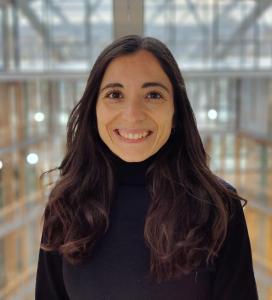L’alimentation est au cœur de nos vies. Elle tient une place importante dans notre éducation, dans nos souvenirs et dans notre patrimoine. Mais Roman Plewka soutient que l’alimentation doit évoluer.
« Je n’avais jamais envisagé une carrière dans l’industrie alimentaire », explique le cofondateur de Formo, une entreprise allemande qui réinvente le fromage. « Mais ma passion pour la nourriture, qu’il s’agisse de tester différents restaurants ou de cuisiner une spécialité, me vient de mon enfance et de mon éducation. »
Des substituts de fromage durables
Il existe aujourd’hui de nombreux substituts végétaux, mais les fondateurs de Formo affirment que la plupart sont loin d’être souples et fondants comme les vrais fromages. C’est là que le koji entre en jeu. Ce type de moisissure, ou micro-organisme fongique, est utilisé dans la cuisine asiatique depuis des milliers d’années pour transformer le riz en saké ou soja et le blé en sauce soja.
Formo fabrique une protéine à partir du koji pour donner à son substitut de fromage le goût et la texture voulus. La microfermentation est à la base de la transformation du koji en protéine. Le produit qui en est issu présente la même valeur nutritive et la même saveur qu’un fromage à base de lait et il se consomme de la même manière.
Se passer des animaux

L’idée de Formo a germé il y a environ huit ans, lorsque Roman Plewka a rejoint une société de capital-risque axée sur l’agroalimentaire. Il s’est mis à vouloir concevoir quelque chose d’innovant.
« La nourriture m’apporte beaucoup de joie, mais à un moment donné, j’ai commencé à réfléchir à son incidence sur la société, le bien-être animal et la planète », explique-t-il. « Plus j’y pensais, plus je réalisais qu’il fallait dépasser la représentation opposant l’alimentation durable au plaisir. »
Formo propose deux produits principaux : Frischhain, un substitut de fromage à tartiner frais et crémeux, et Camembritzand, un substitut de fromage à pâte molle de type Brie. Les produits de l’entreprise sont non seulement nutritifs et savoureux mais aussi durables, avec à la clé des avantages pour la population et la planète.
« La technologie de Formo réduit l’empreinte environnementale des chaînes de valeur alimentaires et contribue à l’atténuation des changements climatiques », explique Diogo Machado Mendes, économiste à la Banque européenne d’investissement, qui a travaillé sur le projet.
Soutenir le développement de bonnes idées
Pour répondre à la demande croissante de substituts de produits laitiers riches en protéines, la Banque européenne d’investissement a signé en janvier 2025 un prêt de 35 millions d’euros avec Formo.
« Ce projet contribue à la stratégie “De la ferme à la table” de l’Union européenne, qui promeut la transition vers des systèmes alimentaires plus durables », ajoute Diogo Machado Mendes. « C’est l’une des raisons pour lesquelles nous le soutenons. »
Le financement de la BEI, qui bénéficie de la garantie InvestEU de l’Union européenne, permettra à Formo de poursuivre la mise au point de ses procédés de fermentation et de produire davantage de substituts de lait et d’œufs.
« C’est là un témoignage clair de notre rôle croissant dans la bioéconomie », déclare Alberto Casorati, chargé de prêts à la Banque européenne d’investissement, qui a supervisé l’initiative. « Formo commercialise dans l’Union européenne un produit innovant et durable qui s’adresse à un large éventail de consommateurs, y compris ceux qui sont intolérants au lactose ou suivent un régime végétalien. »
Un système alimentaire respectueux du climat
L’objectif de Formo est de contribuer à la mise en place d’un système alimentaire plus résilient et respectueux du climat, qui réponde aux besoins des personnes soucieuses de l’impact de l’alimentation sur la planète.
La Banque européenne d’investissement aide des entreprises comme Formo à mettre au point de nouvelles technologies et de nouveaux procédés pour passer de la phase du concept à la commercialisation sur le marché, favorisant ainsi un écosystème durable.
« Si l’Europe continue d’innover à un rythme rapide, elle attirera beaucoup d’autres jeunes pousses », déclare Roman Plewka. « Cela ouvre des perspectives formidables. »
FORMO (IEU GT2)
R&D activities and production capacity expansion to launch substitutes of dairy and egg products based on precision fermentation.

